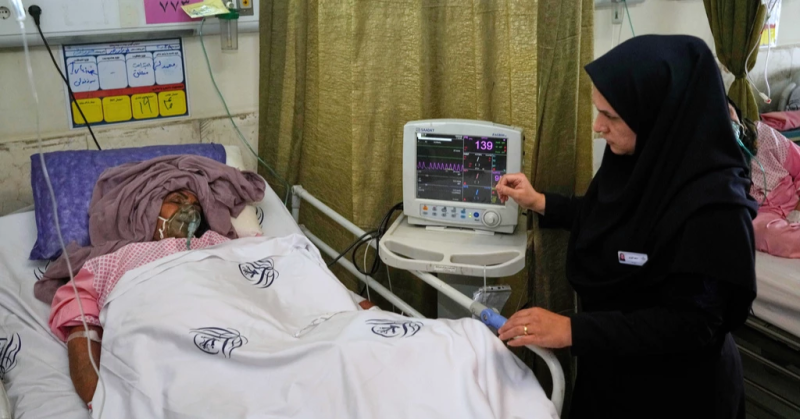- India Sees 9% Drop in Foreign Tourists as Bangladesh Visits Plunge |
- Dhaka Urges Restraint in Pakistan-Afghan War |
- Guterres Urges Action on Safe Migration Pact |
- OpenAI Raises $110B in Amazon-Led Funding |
- Puppet show enchants Children as Boi Mela comes alive on day 2 |
Israeli strikes kill 400+ in Iran as conflict escalates

Over 400 Iranians have been killed and more than 3,000 injured in a series of Israeli airstrikes over the past nine days, according to Iran’s Health Ministry, marking the deadliest cross-border escalation since the Iran-Iraq war.
Most of the casualties are civilians. In a statement posted online on Saturday, Hossein Kermanpour, spokesperson for the Health Ministry, said, “Nine days of attacks have killed more than 400 Iranians, including 54 women and children, and wounded 3,056 others.”
Kermanpour added that 2,220 of the injured have been discharged after treatment, while 232 received care at the site of the attacks. He noted that medical teams have performed 457 surgeries during the ongoing emergency.
Meanwhile, the Israeli military has confirmed targeting Iranian nuclear infrastructure, including a nuclear research facility in Isfahan, and claimed responsibility for killing three senior Iranian commanders in precision strikes. Officials indicated the military is preparing for a potentially prolonged conflict.
On Saturday morning, plumes of smoke were seen over a mountainous area near Isfahan after an Israeli strike reportedly hit two centrifuge production sites in two separate waves. It was the second Israeli attack on Isfahan since the conflict began. While local officials confirmed damage to the facility, no casualties were reported from that particular strike.
In retaliation, Iran launched a new barrage of drones and missiles toward Israeli territory. Israeli officials said the majority of incoming projectiles were intercepted. A senior Israeli source, speaking anonymously, said more than half of Iran’s missile launchers had been destroyed in counterstrikes.
“We’ve created a bottleneck, making it harder for them to launch further attacks,” the official said. “But Iran still retains significant capabilities.”
An Iranian drone reportedly hit a two-storey building in northern Israel, but no casualties were reported, according to emergency services.
Israeli military spokesperson Brig Gen Effie Defrin said the military was “deepening strikes night after night” and preparing for a prolonged campaign. Chief of Staff Lt Gen Eyal Zamir has directed forces to continue targeting Iran’s nuclear and missile infrastructure under “Operation Rising Lion,” which began on 13 June with coordinated strikes on nuclear sites across Iran.
Explosions were reported in several areas of Tehran, with residents describing powerful blasts and temporary power cuts in parts of the city.
Israeli Prime Minister Benjamin Netanyahu defended the operation, calling it a preemptive move against what he described as “an imminent threat to Israel’s very survival” from Iran’s nuclear programme.
Iran’s Supreme Leader Ayatollah Ali Khamenei confirmed that several senior military officials and scientists had been killed in the Israeli strikes, including former national security chief Ali Shamkhani.
These attacks mark the most intense military confrontation Iran has faced since the 1980s, with both nations bracing for further escalation.

